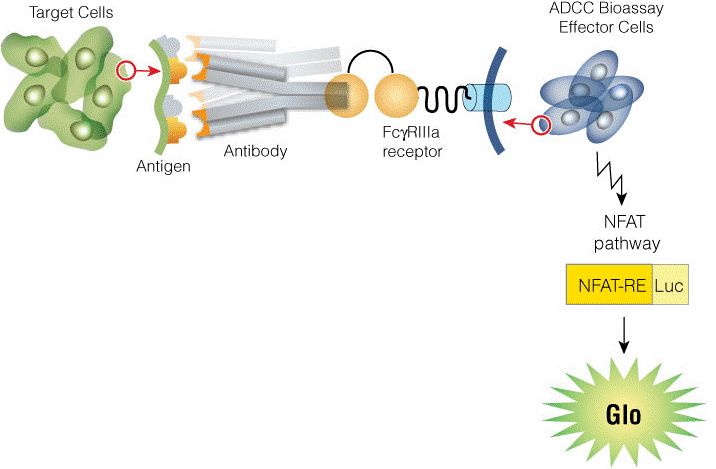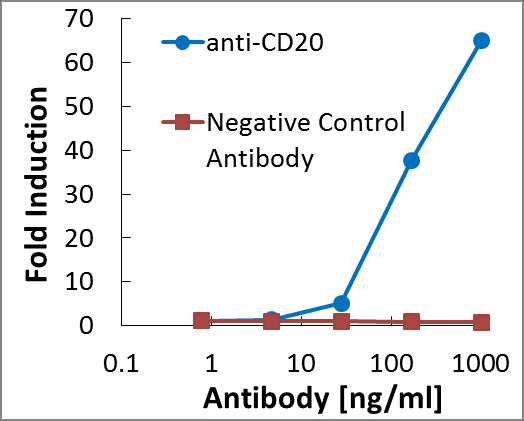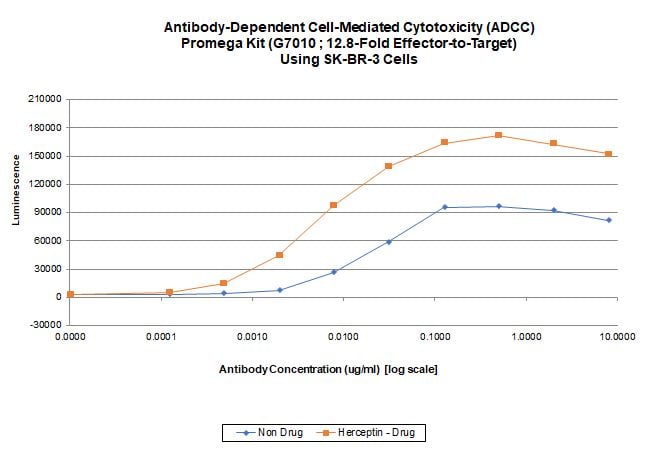ADCC Assay Services
Antibodies mark invader cells for destruction in the pathway termed Antibody Dependent Cellular Cytotoxicity (ADCC), which comprises part of the adaptive immune response. After an antibody coats the target cell surface effector cells, such as natural killer (NK) cells, bind the Fc portion of the antibody, causing the Fc receptors to be cross-linked and activating the effector cell.
In vitro ADCC assays are the first step in evaluating the therapeutic potential of an antibody. SBH Sciences now offers ADCC assay services, based upon the Promega ADCC Reporter Bioassay™ technology.
Promega ADCC Reporter Bioassay™

Traditional ADCC assays require the use of donor peripheral blood mononuclear cells (PBMCs) as effector cells, and typically monitor apoptosis by measuring release of a radioactive marker. PBMC variability can lead to inconsistent results, and use of radioactive markers complicates safety considerations. The Promega ADCC Reporter Bioassay™ uses an engineered effector cell that stably expresses the FcγRIIIa receptor, which is coupled to expression of luciferase. Upon addition of the Bio-Glo™ substrate, activated effector cells luminesce. No donor cells or radioactive markers are needed.

ADCC Assay: Measurement of anti-CD20 activity on WIL-2S target cells, using the Promega ADCC Reporter Bioassay™. Effector cells and target cells were mixed at a ratio of 6:1 (75,000 effector cells/well) and incubated for 6 hours at 370C. Bio-Glo™ reagent was added and luminescence was measured using a Promega GloMax Multi Detection System™. A 70 fold induction of ADCC activity was detected at 1ug/ml α-CD20.

SBH Sciences is now offering ADCC assays based upon Promega technology as a pre-clinical service for antibody evaluation.
To find out more please contact us today.
